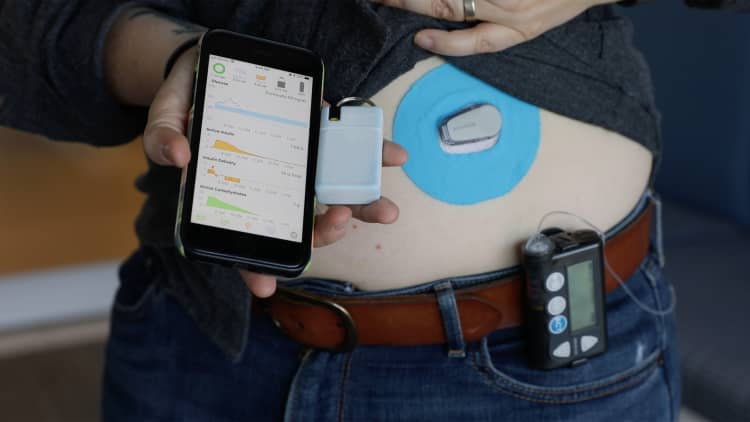Verily, Alphabet's life sciences arm, has paused work on its so-called "smart lens" program, which was aiming to put tiny sensors on contact lenses to measure blood sugar levels in tears.
If it worked, the lenses could help diabetics track their glucose levels in real time and in less invasive ways than the traditional meters that require piercing the skin. But in a blog post on Friday, Verily said that after four years of research it has determined that detecting blood sugar in tears is a massive — and potentially insurmountable — technical and scientific undertaking.
"Our clinical work on the glucose-sensing lens demonstrated that there was insufficient consistency in our measurements of the correlation between tear glucose and blood glucose concentrations to support the requirements of a medical device," the company said.
Verily made a big splash when if first launched the program in 2014, while it was still known as Google Life Sciences. The company partnered with Alcon, Novartis' eye-care division, on the project. However, it's been quiet about the project in the past few years, leading to speculation that it was winding down.
Verily said it did have some success with the experiment in a controlled environment, but not in actual tests because of the dynamic environment of the eye. It's a problem that goes beyond Verily.
Billions of dollars have been spent on research and development, but companies across both technology and life sciences have struggled. There's even a book dedicated to documenting these failures titled "the pursuit of noninvasive glucose: hunting the deceitful turkey."
Google and other technology companies including Apple remain interested because non-intrusive glucose monitoring would be a game changer for millions of people. More than 100 million people are living with diabetes or pre-diabetes in the United States alone, according to the Centers for Disease Control and Prevention, and many are required to prick their finger multiple times per day to get their glucose levels.
Verily stressed in the post that it will continue with its other projects in the diabetes space through its other life sciences partners:
We remain committed to improving the lives of people with diabetes including through improved methods for inexpensive and unobtrusive glucose sensing to support diabetes management. We are working closely with Dexcom to develop miniaturized continuous glucose monitors and with Onduo, our joint venture with Sanofi, to integrate continuous sensing into the care paradigm for people living with Type 2 diabetes.
It also has other projects with Novartis, including an investment in a bio-tech growth fund.
The company doesn't see its contact lens program as a loss. It said it has uncovered other potential, more near-term opportunities through its work to sense and transmit data around the eye.
Verily has started working on a "smart" contact lens for age-related farsightedness, as well as a "smart" lens for improving sight after a cataract surgery.
WATCH: Diabetics are hacking old insulin pumps to make them smarter — here's what happened when I tried it



